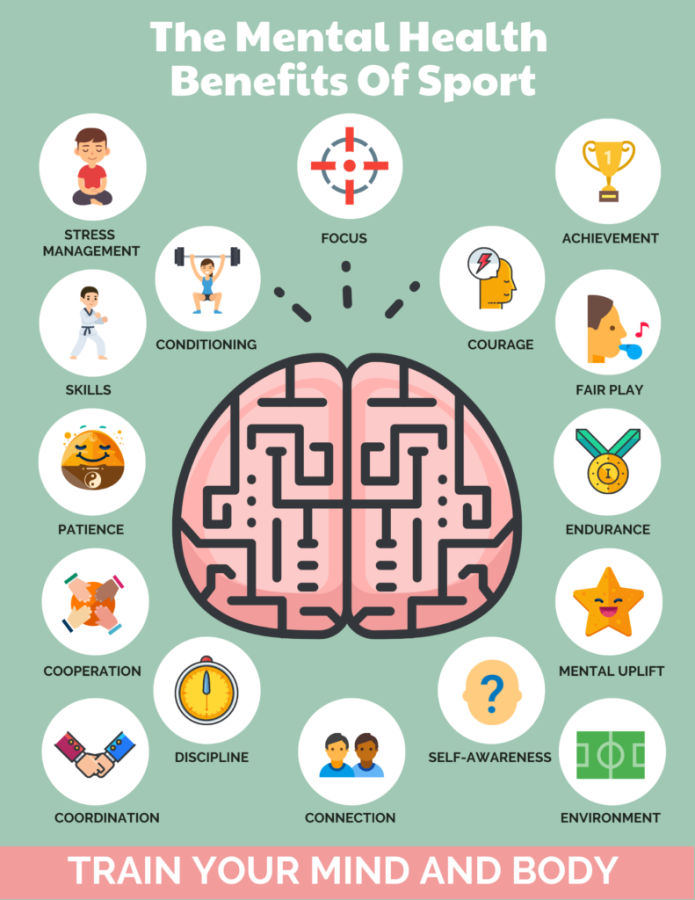Pro’s of mental health in sports
December 1, 2022
Sports, sports, sports… Everyone says you should play one.
The benefits are quickly reaped, yet many people dislike playing them. Sports has always amazed me; it can move people from different backgrounds, uniting them in a common goal – a Phillies win, Roger Federer’s retirement, or Manchester United recruiting a new player.
But what exactly are the mental health benefits of playing one? Let’s be clear, we will only be discussing amateur sports, not mental health in professional sports – that is an entirely different story.
The connotation with sports has always been weight loss, good physical shape, and athleticism. But, many people are deviating from this mindset to a more holistic outlook – some are shifting to the viewpoint that sports can be a tool to maximize good mental health. With the rising popularity of holistic exercises like yoga and pilates significantly contributing to this change, young and old people alike are changing their attitudes towards sports and utilizing sports as a tool to boost their livelihoods.
Recreational sports like a community cricket club or a high school sports team will enhance social skills like self-esteem, communication, and teamwork. Individuals work together with teammates to accomplish a common goal. Sports results in more robust and improved skills as participation increases. They also help to enhance self-image and allow for one to harbor a sense of pride in accomplishments, which can then be applied off the field well.
Physical activity stimulates neurotransmitters that induce happy feelings and pleasure – endorphin relief. Sports participation gives one a break from the stressful environment and allows for social interaction. Movement alone aids in improving your mood, but social interaction in a recreational setting produces mental health benefits like relaxation and a boost in serotonin.
Physical activity allows you to exert energy, releasing the pent-up stress and worries of the day. A tired body means a tired mind, so it aids in regulating sleep cycles. Sleep cycles are critical when it comes to the body continually functioning in a high capacity, so sleep increases focus and concentration and gives your body needed mental rest. Depression and anxiety are kept at bay when participating in physical activity; the increased activity releases endorphins – relaxing the mind and reducing the number of stress hormones in your body.
The changed attitude in sports, from a purely physical perspective to a mental one is a breakthrough for the mental health of individuals across the globe. – It allows for them to practice healthy living.
